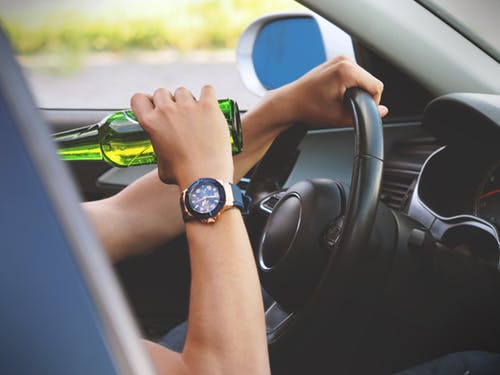Being pulled over for suspicion of OUI, or operating under the influence of drugs or alcohol, can be a scary and intimidating experience. Officers are trained to make observations and to look for evidence that will prove your guilt of OUI in Massachusetts. In addition, not knowing the process or what to expect can add to your fear. If you’ve been pulled over, you’re likely wondering what the consequences will be. Many wonder if their mistake will lead to a felony record that will follow them for life.
When an OUI is a Felony in Massachusetts
 For those that have been pulled over for a first, or even second OUI, the charges against you will likely be misdemeanor charges absent additional circumstances in the case. In effect, Massachusetts allows individuals two chances before imposing felony charges.
For those that have been pulled over for a first, or even second OUI, the charges against you will likely be misdemeanor charges absent additional circumstances in the case. In effect, Massachusetts allows individuals two chances before imposing felony charges.
Penalties and consequences become much more severe once an individual is charged with three OUIs. A third OUI is a felony. In addition to felony charges, a third drunk driving conviction will also include mandatory jail time. The punishments for a third OUI include:
- $1,000 – $15,000 fine
- Prison time 150 days to five years (includes mandatory jail time)
- License suspension up to eight years
- Wait period of two years to apply for a hardship license
- Installation of ignition interlock device
Note that prison time can range from 150 days to five years which includes mandatory jail time.
Consequences of a Felony OUI Conviction
There are consequences that you may not consider when you are convicted of any crime. Felonies carry more severe consequences than misdemeanors, however, and should always be taken very seriously. If you are charged with a felony OUI it is especially important to speak with a qualified OUI attorney. In addition to the criminal penalties associated with the crime, there are also additional consequences that come with a felony conviction, for example:
- Restrictions on the type of employment you may hold
- Ineligibility to vote
- Ineligibility to sit on a jury
- Immigration consequences including deportation and denial of citizenship
- Denial of the right to possess a firearm
- Requirement to provide criminal record to the principal of the school you are attending, if applicable
Additional Facts Can Mean a Felony Conviction Regardless of the Number of Prior OUI Convictions
There are other cases where a first or subsequent OUI can be charged as a felony. If the case involves serious injury, or death to another, you will be charged with felony crimes. In fact, the punishment for a death or serious injury OUI can include:
- Imprisonment in state prison for up to 2½ to 10 years
- Fines of $5,000
Avoid a Felony OUI Conviction
To avoid an OUI conviction, never drive a vehicle under the influence of alcohol or drugs.  Outside of the obvious, there are legal defenses available to you if you’ve been wrongly accused or if your rights have been violated. The law in the United States ensures that certain processes must be followed in order to convict an individual of a crime.
Outside of the obvious, there are legal defenses available to you if you’ve been wrongly accused or if your rights have been violated. The law in the United States ensures that certain processes must be followed in order to convict an individual of a crime.
It is important to know that OUI (or DUI or DWI) convictions in other states will “count” for purposes of determining the number of prior OUI convictions and the associated penalties. Massachusetts has a lifetime lookback period. This means that any OUI convictions, regardless of the state they occured in or how long ago they occurred, will be used to determine whether your current conviction is a misdemeanor or felony.
Call OUI Attorneys for Experienced OUI Representation
If you’ve been charged with drunk driving, whether a first or subsequent offense, contact OUI Attorneys as soon as possible. An OUI can have serious consequences regardless whether the OUI charge is a misdemeanor or felony and can have a substantial impact on your rights and your life. The network lawyers at the OUI Attorneys have experience defending those accused of driving under the influence and are available to talk with you about the facts of your OUI case.


